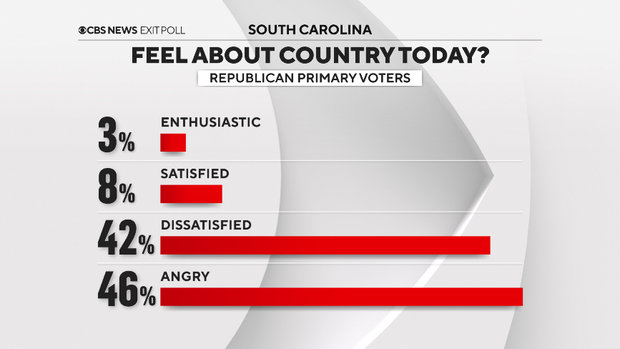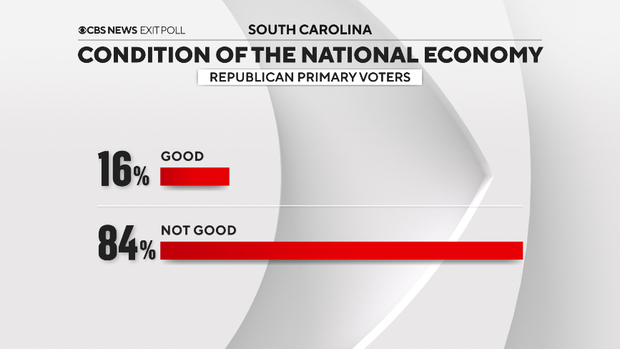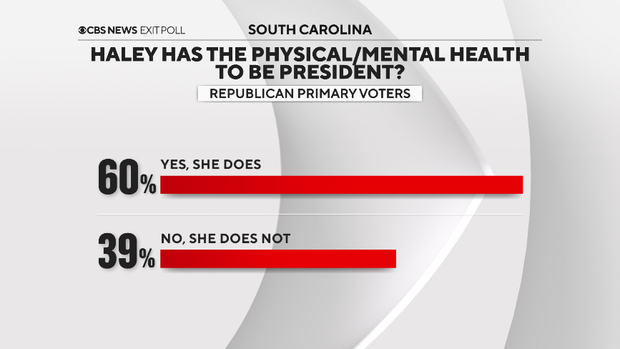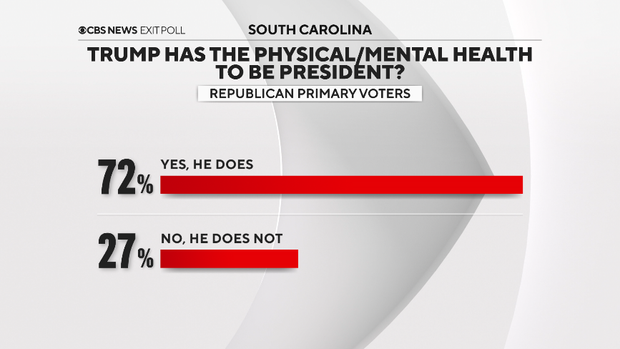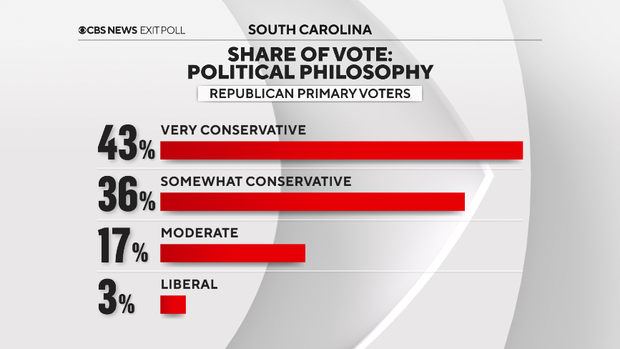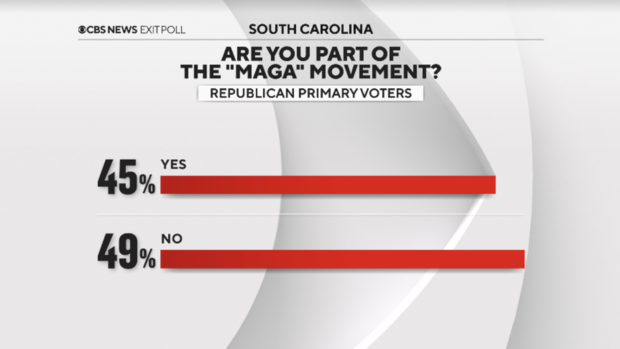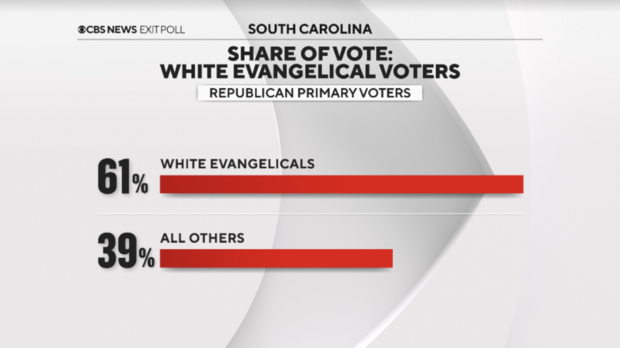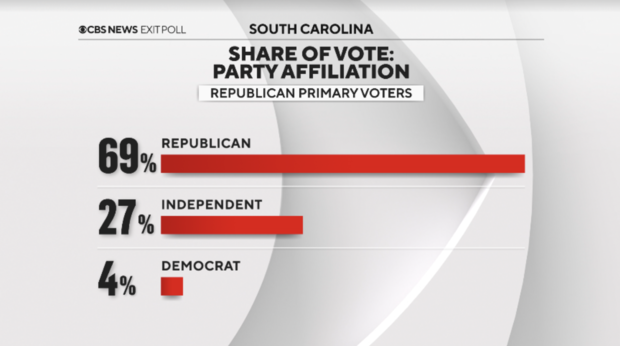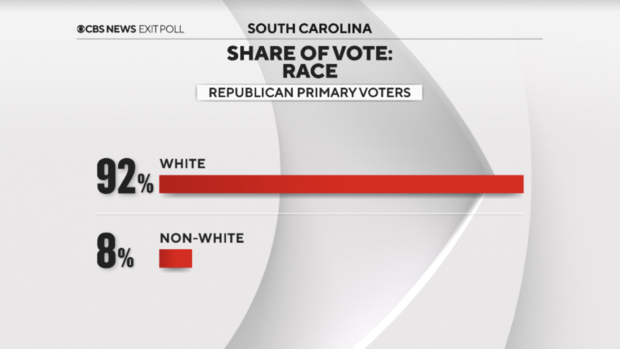Note: percentages may update as CBS News collects more data.
Voters in South Carolina are weighing in on the 2024 Republican primary election Saturday. Here’s the latest on the factors that went into voters’ decisions — how they chose between former President Donald Trump and former South Carolina Gov. Nikki Haley at the ballot box, according to exit polls.
South Carolina Republican primary exit poll results for 2024
Most South Carolina GOP primary voters reject the charge that Trump is mentally unfit to serve as president, according to early exit polls.
And South Carolina Republican primary voters are also dissatisfied with the way things are going in the country overall and rate the nation’s economy negatively, according to early exit polls. In fact, nearly nine in 10 of these voters say they’re dissatisfied with how things in the country are going — including nearly half who say they are angry about it. This is currently higher than the 36% of New Hampshire primary voters who said they were angry. Eight in 10 say the economy is either not so good or poor.
Physical and mental fitness for office
Haley has questioned Trump’s mental fitness for office, but Trump’s voters overwhelmingly refute this, and most instead charge that it’s Haley who lacks the physical and mental health needed to serve effectively as president. As a result, Trump beats Haley on this measure among Republican primary voters overall in South Carolina.
What does the South Carolina GOP primary electorate look like? It’s more conservative.
These early exit polls show a largely conservative electorate, and one that more closely resembles that of the Iowa GOP caucuses than the New Hampshire Republican primary.
This electorate is more conservative than it was in 2016, when Trump won the Republican primary in this state.
Conservative: More than four in 10 of GOP primary voters call themselves “very conservative,” higher than the 38% who identified themselves that way in the 2016 primary. In 2016, those who were “somewhat conservative” outnumbered those who were “very conservative.” But the reverse is the case in the primary today.
MAGA: Almost half of South Carolina GOP voters identify as “MAGA,” in line with Iowa GOP caucusgoers (46%), but higher than what CBS News saw in the New Hampshire primary.
Evangelical: About six in 10 voters are White evangelicals, about three times as many as there were in the New Hampshire Republican primary. And if this holds, it would be higher than the 55% who identified as White evangelical in the Iowa caucuses.
Independents: Only about a quarter of voters call themselves independents, lower than the 44% in New Hampshire. About 4% of today’s primary voters identify as Democrats.
Race: As we often see with Republican primary electorates, this electorate is largely White. More than nine in 10 voters are White.
When do polls close in South Carolina?
When will we know full South Carolina GOP primary results?
Primary results in the South Carolina Republican primary will start to come in after the polls close. CBS News will not characterize or project the outcome of the race before the last polls close at 7 p.m. ET.
Current Republican delegate count for the 2024 candidates
This is the latest CBS News’ estimate of how many delegates have been allocated to Republican candidates, based on the results of the nominating contests to date. Heading into the South Carolina primary, Trump had an estimated 63 delegates, compared to Haley’s 17 delegates. South Carolina allocates 50 delegates. Twenty-nine of them are state delegates and the winner will take all of them. Twenty-one are allocated by congressional district — three for each of the seven districts, and the winner takes all the delegates in each district.
There are 50 delegates at stake and 29 will be awarded to the winner of the statewide vote. Twenty-one delegates will be allocated according to the vote in each of the state’s seven congressional districts. The top vote-getter in each district will get three delegates from that district. The tracker currently includes estimated delegates allocated after the GOP contests in Iowa, New Hampshire and Nevada.
